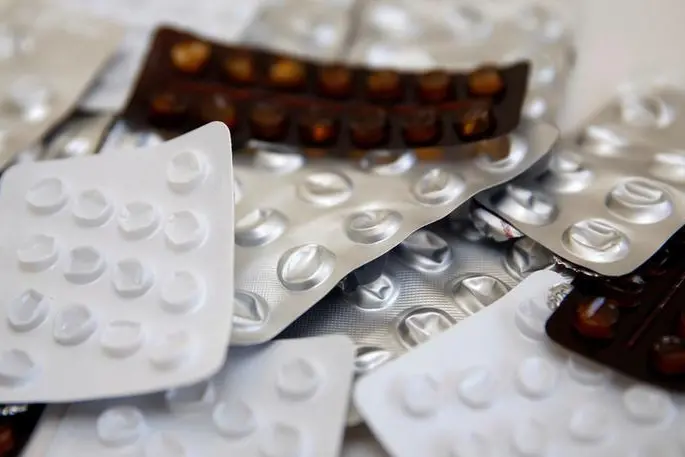PHOTO
India is the largest manufacturer, exporter, and proponent of generic drugs, and has contributed to ensuring better health of millions of poor people, especially in Africa and Latin America.
The world has been looking at India for affordable drugs, and India is delivering it, with the objective of lower healthcare costs. India's contribution has been acknowledged time and again as the generic drugs manufactured by Indian companies have helped millions of poor and underprivileged ones get treatment for difficult diseases at economical prices.
The World Health Organization (WHO) has called India "generous" for being the principal supplier of generic pharmaceutical products to the developing world for several decades.
“The success of the India pharmaceutical industry has certainly been of benefit to patient populations throughout the developing world, who have relied on India’s export of low-priced generic medicines," said WHO in a report that was prepared with the cooperation of the European Union.
In order to ensure the entire population has access to medicine, India started giving free generic drugs to its people a decade ago. It has expected to have benefited over half a billion people. And India's policy to promote cheaper and standard quality medicine did not remain restricted to India. India accounts for 20 percent of the global exports of generic medicine.
The government of India has come up with a special health scheme, in which dedicated outlets are opened to provide generic medicines at affordable prices to poor and deprived people. Latin America is a major beneficiary of generic drugs from India. The Georgetown Journal of International Affairs of Washington-based Georgetown University said India “earned the trust of the Latin American people” and is “now perceived to be a vital supplier of high-quality, affordable” vaccines and generic drugs.
Africa is another region where Indian generic drugs such as anti-retroviral (ARV) and anti-malarial medicines helped public health departments to treat major diseases.6 Even the American pharmaceutical sector is dependent on India as 40-50 percent of the generic drug supply in the US comes from Indian
During the Covid pandemic, 90 percent of prescriptions in the US were filled with generic drugs, and one in every three pills consumed was produced by Indian generics companies. While there has been lobbying against generic drugs, the government of India has continued with its mission of affordable medicines for all.
Global charity organisation Doctors Without Borders has extended its support to India’s generic drugs mission as it feels the big pharma companies’ move to block generics would make millions in developing countries suffer. Dr Joanne Liu, International President of Doctors Without Border (MSF), said India needed to remain the 'pharmacy of the developing world’.
“As doctors who have been relying on affordable medicines and vaccines made in India to do our work, we cannot afford to stand by silently as the tap of life-saving drugs gets turned off for people in our projects and beyond,” she said.
Many international non-profits such as Bill and Melinda Gates Foundation, MSF, and the Clinton Foundation buy generic medicine manufactured in India, which they distribute in their healthcare work in Africa. The Bill & Melinda Gates Foundation also launched a programme to develop generic medicine for Covid treatment in low-income countries with the help of Indian pharmaceutical companies.
Generic drugs manufactured in India proved helpful in the treatment of HIV/AIDS in poor African countries. “Around 80 percent of the AIDS medicines we use are generic drugs made by Indian companies. But it’s not just AIDS. In other projects too, we also routinely use Indian generic drugs to treat other diseases, such as TB, malaria, and a wide range of infectious diseases,” said Janice Lee of Doctors Without Borders.
Despite hard lobbying by big pharma companies, India has decided to protect the generic drugs industry, which would continue to offer essential medicines to vulnerable people at affordable prices.
There have been appeals from the poor and developing countries, seeking India not to stop manufacturing generics. The sustained efforts to promote affordable medicines have had a positive impact on many of the world’s biggest 20 pharmaceutical companies. These companies once opposed Indian generics but they now take pride in their efforts to help poor countries and fight neglected diseases.
© Muscat Media Group Provided by SyndiGate Media Inc. (Syndigate.info).





















